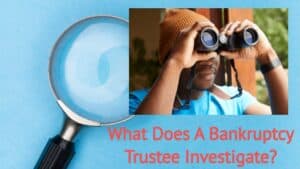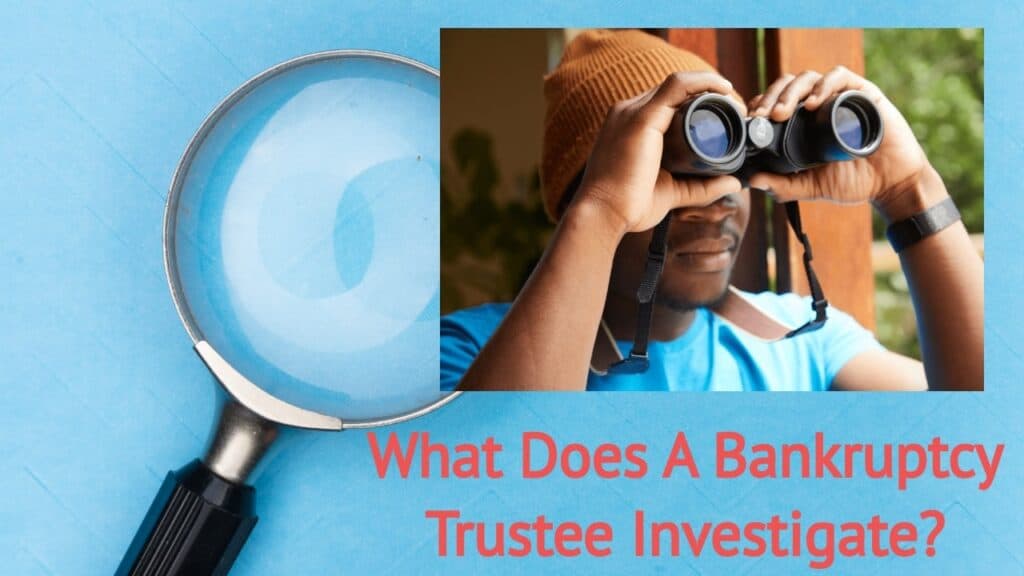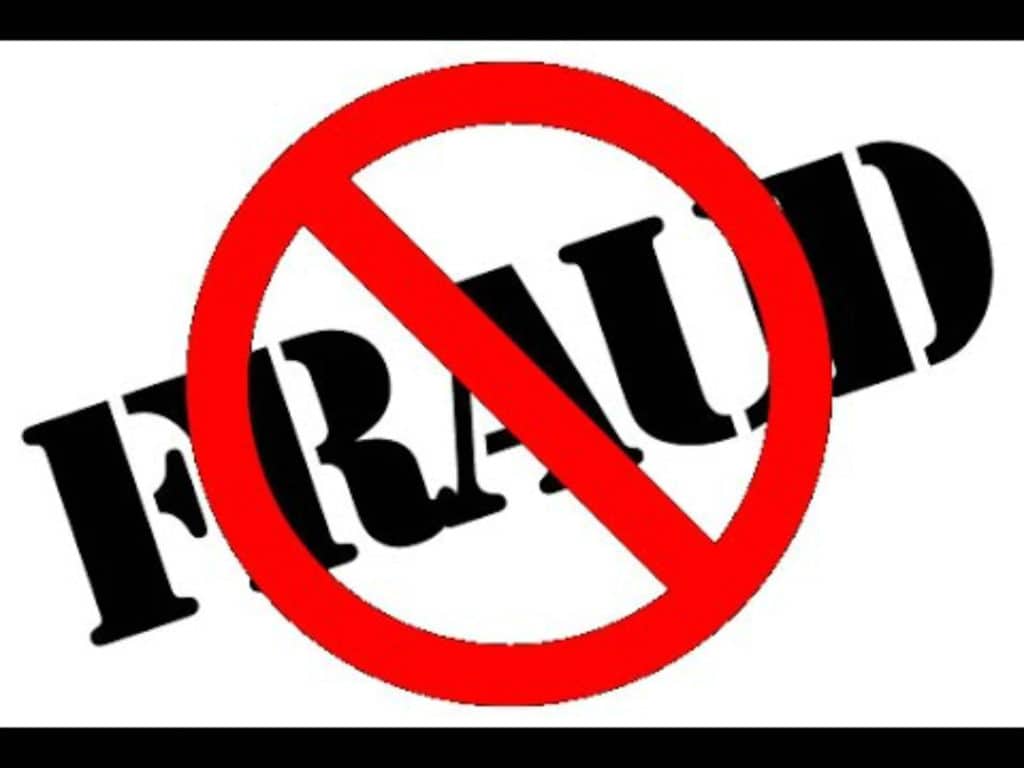We hope that you and your family are safe, healthy and secure during this COVID-19 pandemic.
Ira Smith Trustee & Receiver Inc. is absolutely operational and Ira, in addition to Brandon Smith, is readily available for a telephone consultation or video meeting.
What does the bankruptcy trustee investigate – What is a bankruptcy trustee?
The new name for a bankruptcy trustee is a licensed insolvency trustee. I will use the terms interchangeably in this Brandon Blog. In this blog, I discuss what does the bankruptcy trustee investigate? But first, I want to go through a few basics.
The process of a bankruptcy trustee’s role in the Canadian insolvency system is a delicate one. The licensed insolvency trustee starts out by reviewing the debtor’s financial information and advises the debtor on whether a restructuring is possible to avoid bankruptcy or if filing for bankruptcy is their only realistic option.
The Trustee’s job is to help a debtor restructure his or her financial affairs and to do that, he or she must know what the debtor’s assets and liabilities are, the bigger picture of the debtor’s life and what transactions the debtor may have recently entered into. It is not just what he or she claims his or her debts are.
The Trustee collects all this information in order to advise the debtor on whether a bankruptcy protection financial restructuring filing is possible or if bankruptcy is their best option and why. The debtor then must choose what sort of insolvency process they wish to enter. Once filed, the Trustee also acts for the creditors and is required to perform an investigation.
Today I discuss what does the bankruptcy trustee investigate? Anyone contemplating a bankruptcy filing should know what they are in for before it is too late.
What does the bankruptcy trustee investigate – Tell your bankruptcy trustee everything
I thought of writing this blog topic because just yesterday, a lawyer friend called up with a question. The lawyer is a family law lawyer, representing a spouse who completed a consumer proposal. The lawyer, on behalf of his client, is making a claim as having a trust claim over his spouse’s home.
The judge asked if the client declared this claim as a potential asset in his sworn statement of affairs in the consumer proposal bankruptcy paperwork? The answer is no. Now the judge says, correctly, that the client had a duty to disclose that information at the time. The judge is correct. The judge then went on to ask how he can rely on the credibility of the client’s assertions now? What a jackpot they are now in!
That is why I say tell your bankruptcy trustee everything. If there is full disclosure in the initial interview before the period of time the bankruptcy process begins, I can then consider any troublesome issues and advise on the best course of action. Then you don’t need to worry about what does the bankruptcy trustee investigate. Nobody wants to have a nasty surprise like my lawyer friend’s client.

What does the bankruptcy trustee investigate? What if I fail to remember to divulge something?
It is fairly possible that you will accidentally neglect to divulge something in your bankruptcy documents or inform your Trustee about it. You do not want anyone thinking you are conducting the concealment of assets.
What does the bankruptcy trustee investigate? What can I do?
As quickly as you learn of your error, call your trustee right away and correct this mistake. You want to make sure the Trustee understands it was a simple error and not a case of you making a false claim.
What does the bankruptcy trustee investigate? What if I have outstanding tax returns?
If as an example, you forget to inform your insolvency trustee that you have unfiled tax returns, CRA can oppose your discharge and request that all outstanding returns be filed before you get to a discharge hearing. This will extend the time you remain in bankruptcy and puts your discharge into a court hearing.
It may turn out that the amount owing from those unfiled returns is not that large, and if you had filed the returns before going bankrupt and declared that additional liability, there would not have been a problem at all. Your Trustee actually should have caught that before you filed and got you to bring your tax filings current.
What does the bankruptcy trustee investigate? What happens If I overreported income?
Reporting earnings greater than you actually earn might set off a surplus income payment requirement that is either higher than it should be or where there would not have been one at all if you had properly reported your monthly income. Make sure you have documents to back up everything you are advising your trustee about so that such an error is not made.
The same holds true for underreporting. You may have a surplus income obligation that will not be caught and finding out at the end will hold up your discharge. Again, your Trustee should have asked for backup during your initial meeting and should have caught your error before filing for bankruptcy.
What does the bankruptcy trustee investigate? Suppose I am not divulging certain information?
If you fail to divulge particular information about your assets or give information that at some point complicates your insolvency, it is certain that this will complicate your discharge at the very least. It may also open you up to having committed a bankruptcy offence which will create worse penalties and headaches for you.
Recall that I mentioned at the beginning of this Brandon Blog that the reason I wrote on this topic today was because of a phone call received from a divorce lawyer friend of ours. The lack of disclosure was not caught in the consumer proposal administration. However, it may totally ruin the client’s chances for any meaningful recovery in his family law proceedings.
If the client had divulged the asset, which at the time was contingent, to the bankruptcy trustee acting as an administrator in the consumer proposal, the Trustee could have worked that into a successful outcome for the client AND the client would not now have his legal problems which could very well cost him big time!

What does the bankruptcy trustee investigate? – Collection of information by bankruptcy trustee also allowed under PIPEDA
A person filed a complaint after a bank, where she as well as her husband had gotten a mortgage from, revealed her personal information, especially regarding her financial situation, to the Trustee of the Bankrupt Estate of her spouse. There was no disagreement that this disclosure happened without the complainant’s understanding or permission.
However, the federal government ruled that it was allowable under the Personal Information Protection and Electronic Documents Act (PIPEDA) given that the financial institution was required to provide the information under another law, namely, the Bankruptcy and Insolvency Act (BIA).
PIPEDA paragraph 7(3)(b) specifies that a party may disclose personal information without the knowledge or consent of that party if the disclosure is for the purpose of collecting on a financial obligation owed by the person to that party.
Paragraph 7(3)(i) of PIPEDA specifies that an organization might disclose personal information without the knowledge or permission of the person if the disclosure is required by law. Trustees are licensed by the Office of the Superintendent of Bankruptcy (Canada) (OSB) under the BIA and also are held to requirements of practices or solutions established by the BIA.
The designated Trustee for her hubby’s insolvent estate wrote to the financial institution, requesting the complete financial institution file connected to the mortgage on the residence jointly had by the complainant wife and the bankrupt husband be disclosed, according to the provisions of S. 164(2) of the BIA.
The bank stated that it revealed the wife’s personal details without her understanding or permission, based on the PIPEDA sections I referenced above. The complainant thought that the Trustee did not have the right to access her individual info from the financial institution without her understanding or consent. The Privacy Commission ruled against her.
As long as the Trustee is asking for information from a 3rd party that will assist in the bankruptcy administration, that 3rd party can provide the information without worrying about what does the bankruptcy trustee investigate or a PIPEDA violation.
On the flip side, for every insolvency administration we perform, as part of the initial sign-up documents, we provide a PIPEDA disclosure statement to the debtor or designated officer of the company. Our PIPEDA disclosure says that in performing our duties we collect and store personal information which we may have to divulge to 3rd parties in performing our duties under the BIA, to the court or in assisting the debtor in reaching arrangements with their creditors.
What does the bankruptcy trustee investigate? – Can I sell my stuff before filing bankruptcy?
Bankruptcy is a fair and well-balanced treatment that considers the interests of all stakeholders. I always tell potential clients that any sale or transfer of property has to be done as if your creditors are evaluating your every move while you do it.
In Ontario, the Execution Act provides for certain personal exemptions, which also apply to anyone who does a bankruptcy filing in Ontario, up to a stated value. The exempt property consists of:
- household furnishings and appliances – $14,180;
- tools and other personal property used to earn an income:
- in the case of a debtor engaged solely in the tillage of the soil or farming, $31,379 for livestock, fowl, bees, books, tools and implements and other chattels ordinarily used by the debtor in the debtor’s occupation, or
- in any other case, $14,405;
- motor vehicle – $7,117; and
- principal residence – $10,783.
You might be liquidating assets that you don’t need to because they would be exempt. If you are thinking about liquidating nonexempt property to make financial settlements with certain of your creditors, this will be problematic. You could end up preferring some over others which will cause both you and them problems in your bankruptcy.
This is another factor to think about. My best advice is that you raise these issues with a Trustee before you do anything if you are contemplating bankruptcy. The Trustee will explain to you the ramifications of what you are thinking of doing so that you will have the smoothest time possible in your bankruptcy estate. The Trustee will also explain what does the bankruptcy trustee investigate so you will be informed.

What does the bankruptcy trustee investigate and look for in bank statements?
The personal bankruptcy trustee uses bank statements and other documents to discover errors or irregularities in your pre-filing personal bankruptcy paperwork. To start, you’ll list your creditors and the amounts you owe each of them; your assets, their values, and whether you can keep any of them as exempt property; your earnings for the last 12 months; as well your regular monthly expenditures. Not only will you disclose your income in several spots in the bankruptcy documents, but you’ll also give confirmation in the form of paycheque stubs and income tax returns, as well
The Trustee then goes over these anomalies with you to permit you to give better paperwork in support of your list of assets and liabilities. You’ll likewise have to send duplicates of your bank statements and also other documents that the Trustee asks for after you file for bankruptcy. Your licensed insolvency trustee makes use of the bank statements to validate your reported info.
If for some reason your historical financial institution deposits are dramatically different than your claimed earnings, you’ll need to be prepared to describe the disparity. If you approximated your bank accounts having a total of $100, yet it was, in fact, your deposit accounts had $1,500 on the day you filed, it will be nonexempt, and the Trustee will take it.
If you paid any type of huge expenses or transferred a large sum or an asset to someone right before you filed personal bankruptcy, the Trustee will have an obligation to report those transactions to your creditors, the OSB and the court and bring that cash back right into the personal bankruptcy estate for all creditors to share. If the cash is not recoverable from a third party, the Trustee will oppose your discharge and will look for payment of a minimum of that cash from YOU as a condition of your bankruptcy discharge.
If nevertheless, the Trustee thinks that you either lied or deliberately omitted details, the Trustee has to report that. The Trustee will certainly oppose your discharge and you will have a substantial issue on your hands needing you to retain a personal bankruptcy attorney.
What does the bankruptcy trustee investigate? All of that.
Red flags the bankruptcy trustee looks for at the meeting of creditors
Communicating with creditors and the meeting of creditors are very useful tools for the trustee in bankruptcy. The creditors have a much longer relationship with the bankrupt than the Trustee. They may very well have information that would be helpful to the Trustee in gaining a better understanding of the assets and liabilities of the bankrupt and of the bankrupt’s financial affairs not clear from the financial documents already reviewed by the Trustee.
At the First Meeting of Creditors in bankruptcy or the Meeting of Creditors in a Division I Proposal (or if required in a consumer proposal), the Trustee and creditor representatives can ask the debtor questions about their financial affairs. This is especially so for any type of discrepancies raised by your filing documents or financial records that indicates that you may be misstating assets or worse, the concealment of assets.
In any financial restructuring, including corporate reorganization plans, the value of the debtor’s nonexempt property really matters mainly because of the rule that entitles unsecured creditors to get a better outcome from such a repayment plan than would be the case in the debtor’s bankruptcy.
If your earnings don’t match your reported numbers, or if you improperly report side hustle business revenues, you can anticipate some sharp concerns and also possibly trouble getting your restructuring authorized or your discharge from bankruptcy.

What does the bankruptcy trustee investigate – When the bankruptcy trustee suspects fraud?
When allegations of bankruptcy fraud enter into bankruptcy administration, the next step normally includes obtaining information via an examination under oath. The BIA enables either the Trustee or the OSB to examine a bankrupt under oath. The BIA additionally permits the Trustee to put questions under oath to anyone that might have information, knowledge or documents concerning the affairs of the bankrupt. One of the key functions of the bankruptcy trustee is to protect the interests of unsecured creditors and to do so at every stage of the bankruptcy process.
As soon as the Trustee has gathered sufficient proof to support a case, the Trustee has 2 options, depending on the circumstances. If it is criminal activities or bankruptcy offences that the bankrupt person or the Directors of the bankrupt company have done, the Trustee can ask the OSB to review the proof. If they concur with the Trustee’s analysis, they can then call in the RCMP to check out.
If the RCMP has adequate evidence of a crime having been committed, or of bankruptcy offences, they will have the Crown lay bankruptcy fraud charges and then there will be a criminal trial. The result can be a fine, jail time or both. This will also give cause for the Trustee to have no choice but to oppose the person’s bankruptcy discharge.
If it is only about the recovery of money for creditors, the Trustee, if it has sufficient evidence and also funds, can launch a legal action against the appropriate party. The point of this kind of adversary case is to obtain cash for creditors (rather than prosecuting a criminal offence).
Such a proceeding resembles legal actions in various other courts yet generally, the matter in a bankruptcy administration will be heard in a shorter period of time in bankruptcy court than proceedings in various other courts. The obvious goal is for the Trustee to enter into settlement agreements with the offending parties. The goal of settlement agreements is to get cash for the creditors.
What does the bankruptcy trustee investigate summary
I hope that you found what does the bankruptcy trustee investigate Brandon Blog interesting and that you now have a better appreciation for the investigation aspect of an insolvency proceeding. Problems will arise when you are cash-starved and in debt. There are several insolvency processes available to a person or company with too much debt.
If you are concerned because you or your business are dealing with substantial debt challenges, you need debt help and you assume bankruptcy is your only option, call me.
It is not your fault that you remain in this way. You have actually been only shown the old ways to try to deal with financial issues. These old ways do not work anymore.
The Ira Smith Team utilizes new modern-day ways to get you out of your debt difficulties with debt relief options as alternatives to bankruptcy. We can get you the relief you need and so deserve. Our professional advice will create for you a personalized debt-free plan for you or your company during our no-cost initial consultation.
The tension put upon you is big. We know your discomfort factors. We will check out your entire situation and design a new approach that is as unique as you and your problems; financial and emotional. We will take the weight off of your shoulders and blow away the dark cloud hanging over you. We will design a debt settlement strategy for you. We know that we can help you now.
We understand that people and businesses facing financial issues need a realistic lifeline. There is no “one solution fits all” method with the Ira Smith Team. Not everyone has to file bankruptcy in Canada. The majority of our clients never do as we know the alternatives to bankruptcy. We help many people and companies stay clear of filing an assignment in bankruptcy.
That is why we can establish a new restructuring procedure for paying down debt that will be built just for you. It will be as one-of-a-kind as the economic issues and discomfort you are encountering. If any one of these seems familiar to you and you are serious about getting the solution you need to become debt-free, contact the Ira Smith Trustee & Receiver Inc. group today.
Call us now for a no-cost bankruptcy consultation.
We hope that you and your family are safe, healthy and secure during this COVID-19 pandemic.
Ira Smith Trustee & Receiver Inc. is absolutely operational and Ira, in addition to Brandon Smith, is readily available for a telephone consultation or video meeting.



